Is your desk or office cluttered with piles of papers, receipts, and other random pages of “important” information? Do you ask yourself, “What do I really need to keep?” and “What can I safely get rid of?” With spring on the way, your paper clutter could be a great project to tackle.
Here are a few easy steps to help you through the process.
First, you must divide and conquer the piles by sorting them into categories:
- Deal with it now.
- File it for later.
- Shred it.
Once you have your papers categorized, go through each pile a second time and quickly sort them within each category. The “deal with it now” pile, for example, should consist of items requiring action: a bill to be paid, a phone call to be made, responding to a request, an event that’s pending, etc. The “file it for later” pile contains all those long-term items you might need for taxes, insurance, contracts, and so on.
When your piles are in their proper categories, start with the “deal with it now” items. Try to get through as many of these as possible. After you’re done, move each item into the “file it for later” or “shred it” pile. Make a note on any open item to keep track of where you are in the process in case it needs more than one step to complete.
As soon as your piles are smaller and in better order, store them in binders or filing cabinets—or invest in a scanner and digitize them. Whichever system is best for you, be sure your electronic files, folders or dividers are labeled correctly and alphabetized for easy access; then file newest to oldest and date your files so the most current paperwork is always first.
I prefer using binders for things I need to reference frequently: insurance papers, bank account and credit card statements, utility bills, lease agreements, etc. Binders can be easily locked away when not needed and transported if required. Filing cabinets or storage boxes are suitable for long-term items such as loans, contracts, employee records, tax records, receipts, warranty information, meeting minutes, etc. Most invoices can safely be shredded once they’ve been paid or resolved. If you’re not sure about something, file it in long-term storage until you can verify next steps. All records with sensitive information, such as names and account numbers, should be shredded.
Based on guidance from the IRS, you will need to keep financial records for a minimum of seven years; keep everything else for three to four years. Should you ever be audited, a tax auditor will require three years of records from you, but that could extend to six years if substantial errors were found on your returns. Also, when you are ready to sell your business, three years of records will be requested during the due diligence period. This process will go much smoother if all the documents are orderly.
Documents to Keep for Seven Years:
- Business tax returns
- Bank statements and canceled checks
- Credit card statements
- Cash receipts
- Employee files (retain seven years after an employee leaves but up to 10 years if that employee had a work-related accident or claim)
Documents to Keep for Four Years:
- Employment tax records (time sheets, wages, pension payments, tax deposits)
Documents You Should Never Throw Out:
- Business formation documents
- Bylaws
- Stock certificates
- Annual meeting minutes
- Lease agreements
- Operating permits
Thorough paperwork decluttering will take time and patience, but you only need to do it once if done correctly. Then, as more items arrive, you will already have a process in place to determine what to do with each one.
To recap, here are the steps you can take to reduce your piles:
- Divide and Conquer:
- Deal with it now
- File it for later
- Shred it
- Invest in a scanner
- File newest to oldest
- Date your files
If this process seems overwhelming and you still need some assistance, contact our team at Blue Peak Resources; we would be happy to assist you in organizing your documents if exit planning is your next step. Click here to contact us. We look forward to hearing from you!
